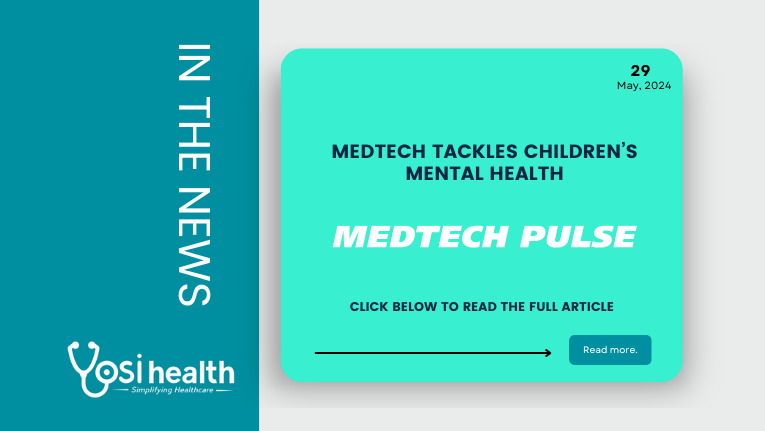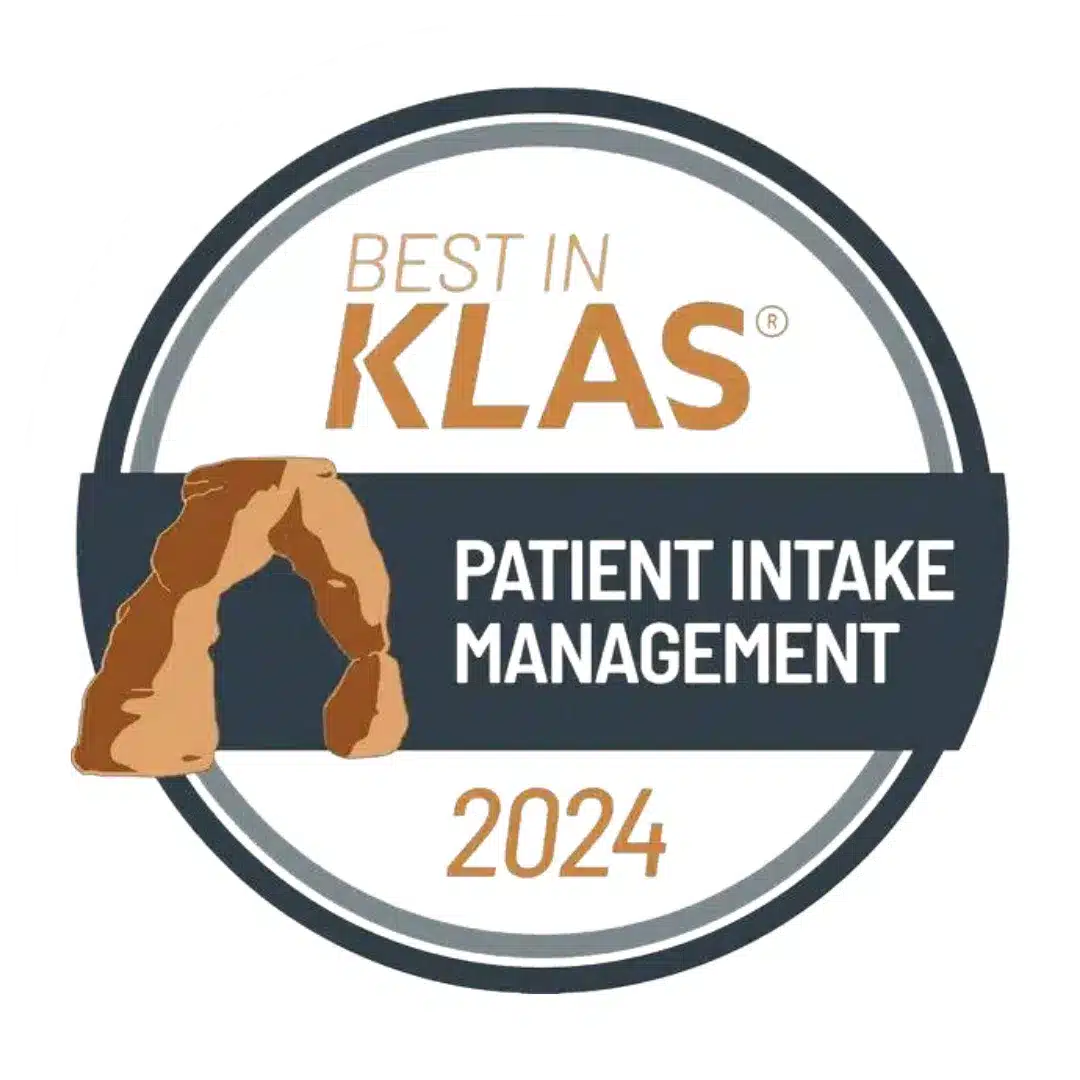
MEDTECH TACKLES CHILDREN’S MENTAL HEALTH
“How are you doing?”
It’s a simple question. Yet, ones just like it can often be the key that unlocks a patient’s mental health status—when asked the right way.
In May, the U.S. celebrates Mental Health Awareness Month. We’re taking this opportunity to spotlight a tricky issue in the mental health landscape: Getting children access to the care they need.
But how do we identify the children who most need this kind of care? Often, the gateway is pediatricians and the screenings in their intake forms.
If you ask the team behind the patient intake system Yosi Health, something as simple as a better-designed intake form can be what flags a pediatric patient for a mental health follow-up. Let’s take a look at how such simple yet effective interventions work.
 Illustration by Mary Delaney
Illustration by Mary Delaney
Intake forms—bottleneck or gateway?
Electronic health record (EHR) evangelists will be the first to tell you: Paper forms and charts are inefficient.
The second one to tell you is Hari Prasad, co-founder and CEO of Yosi Health, whose personal experience inspired the company’s intention to improve the clinical intake system.
“I ended up in the ER with a dislocated shoulder and found myself struggling to fill out paperwork with just one arm,” Prasad told us. “It was a real eye-opener to the inefficiencies of the paper-based system, especially when it came to accessing my own medical records. As I went through the administrative hurdles of getting care for my shoulder, I realized there had to be a better way.”
That better way involved creating a digital end-user experience that both felt seamless and increased compliance and satisfaction all around.
“The process we had in place before using Yosi was cumbersome,” said pediatrician Laura Luzietti, Executive Director of Every Child Pediatrics. “We were unable to have patients complete the necessary paperwork prior to their appointments. Instead, they completed multiple forms on paper before being seen by the provider. This process took a lot of staff time and caused delays in clinic flow.”
Luzietti’s practice often received feedback from parents that pre-visit paperwork was stressful in itself. Now, with streamlined digital forms, the practice focuses more on providing quality care and less on paperwork. Other Yosi Health user practices have also reported offsets to shrinking reimbursements and rising costs, Prasad said.
Innovating on intake to improve mental health outcomes
However, the most exciting outcome from our perspective is the more effective mental health screening workflows and the improvement in patient outcomes.
In the pediatric environment, this innovation is no easy task.
“For one, there’s the sheer volume of appointment-specific forms based on the age of the child receiving care that need to be completed making the process quite complex,” Prasad said. “Additionally, navigating parental consent can be tricky. Depending on the child’s age, parents may have varying levels of involvement in their healthcare, which can impact the child’s ability to provide honest responses. This dynamic can make it more challenging to identify sensitive issues like mental health problems or substance abuse.”
With questions embedded in digital intake forms designed to flag these issues, Yosi has found that many pediatric patients are more comfortable disclosing sensitive details ahead of time. This makes it easier for pediatricians to strike the delicate balance of providing a safe, nonjudgemental space to discuss mental health during the visit while also managing the rest of a well-child visit’s many demands.
“Preventing mental health problems really begins at birth with supporting the parent-child relationship,” Luzietti said. “Screening for developmental delays, screening for behavioral health disorders has really allowed us to bring up conversations that families don’t necessarily know we are interested in or that we have the ability to help with.”
Over the past few years, public health policy has doubled down on recommendations for pediatric mental health screening. In 2022, the U.S. Preventative Services Task Force released guidelines recommending pediatricians screen youth for anxiety and depression starting at eight years old. With rising numbers of pediatric mental health emergencies, catching cases early is key. Improving and enabling screening makes it more likely that more children will be referred to the care they need.
And the care itself continues to grow in its innovation and personalization. Startups like Backpack Healthcare (featured in our Deals Roundup this week) do important work to make psychotherapy and telehealth engaging and accessible to young patients.
Next, we eagerly await to see how innovations can help cut down on waitlists and close insurance coverage gaps in this critical area of care. Our children deserve nothing less.
To read the full article, Click Here


